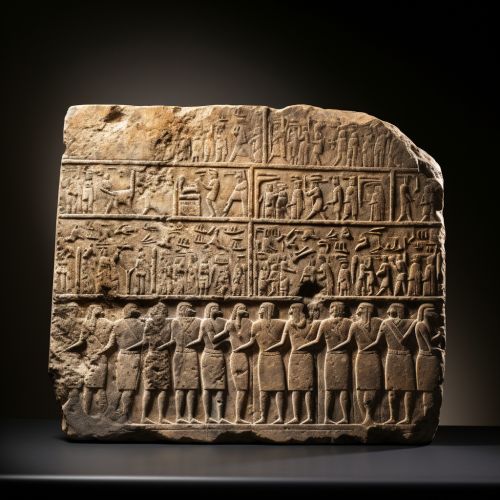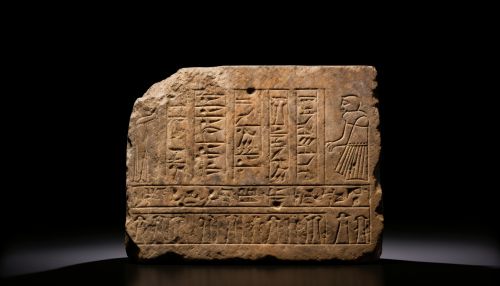Mesopotamian law
Origins and Development
Mesopotamian law refers to the legal systems that developed across the region of Mesopotamia from the early 4th millennium BC. The laws originated in the city-states of Sumer, later spreading to other regions such as Akkad, Babylon, and Assyria. The earliest known legal code, the Code of Ur-Nammu, dates back to approximately 2100-2050 BC.


Legal Codes
The legal codes of Mesopotamia were comprehensive, covering a wide range of issues from property rights and trade regulations to criminal law and family matters. The most famous of these codes is the Code of Hammurabi, which was enacted by the sixth Babylonian king, Hammurabi, around 1754 BC. This code, consisting of 282 laws, is one of the oldest deciphered writings of significant length in the world.
Legal Procedures and Courts
The legal system in Mesopotamia was characterized by a complex set of procedures and courts. The courts were typically presided over by officials appointed by the king, and they were responsible for enforcing the laws and adjudicating disputes. The legal procedures involved the presentation of evidence, the testimony of witnesses, and the use of oaths.
Legal Concepts and Principles
Mesopotamian law was based on several key principles, including the principle of retribution, the principle of proportionality, and the principle of responsibility. The principle of retribution, also known as lex talionis or the law of retaliation, was a fundamental concept in Mesopotamian law, as evidenced by the famous phrase "an eye for an eye, a tooth for a tooth" from the Code of Hammurabi.
Influence and Legacy
The legal systems of Mesopotamia had a profound influence on subsequent legal traditions, including those of the Hebrew Bible, the Islamic law, and the Roman law. The principles and concepts developed in Mesopotamian law continue to be relevant in modern legal systems, particularly in the areas of contract law, property law, and criminal law.
